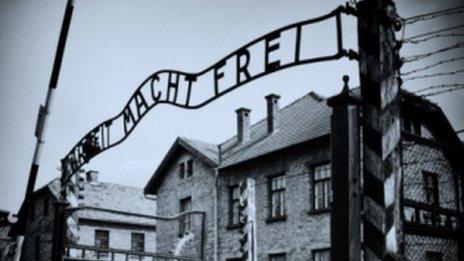'My father, the rapist': Hidden victims of Rwanda's genocide
- Published
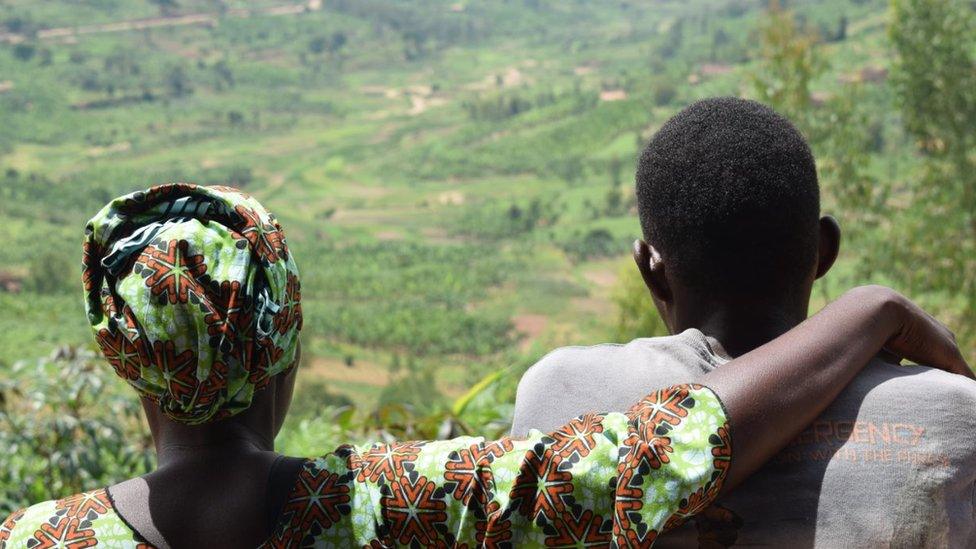
Carine and her son Jean-Pierre, one of thousands born as a result of rape during the genocide
A 24-year-old Rwandan whose mother was raped in the genocide tells the BBC how he came to learn of the circumstances of his birth. Their names have been changed because of the shame surrounding rape, which still exists to this day.
Jean-Pierre says it was a form asking for his parents' names at the end of primary school which first made him question who exactly his father was.
"I did not know him - I did not know his name," he says.
Warning: Some people may find some of the content of this article upsetting
Not having a father at home was not unusual: many other children may have been fatherless - more than 800,000 people were killed during the genocide in Rwanda in 1994. But they knew their father's name.
My son kept asking who his father was. But among 100 men or more who raped me, I could not tell the father"

He had heard the village whispers, and the names people would call him - but it would take years for him to finally learn the whole truth.
The story, his mother Carine says firmly, "is not something to take at one time".
"He had heard different information. He heard gossip. Everyone in the community knows I was raped. There was nothing I could do about it," she explains.
"My son kept asking who his father was. But among 100 men or more who raped me, I could not tell the father."
'I couldn't run away'
Exactly how many children were born as a result of rape during the 100-day massacre in 1994 is not known.
Efforts are being made by the UN to end to conflict-related sexual violence - rape was used as a weapon of war from Syria to Colombia and from Democratic Republic of Congo to Myanmar last year.
Survivors are sharing stories on social media using the hashtag #EndRapeinWar to mark the UN's day to eliminate sexual violence in war, external.
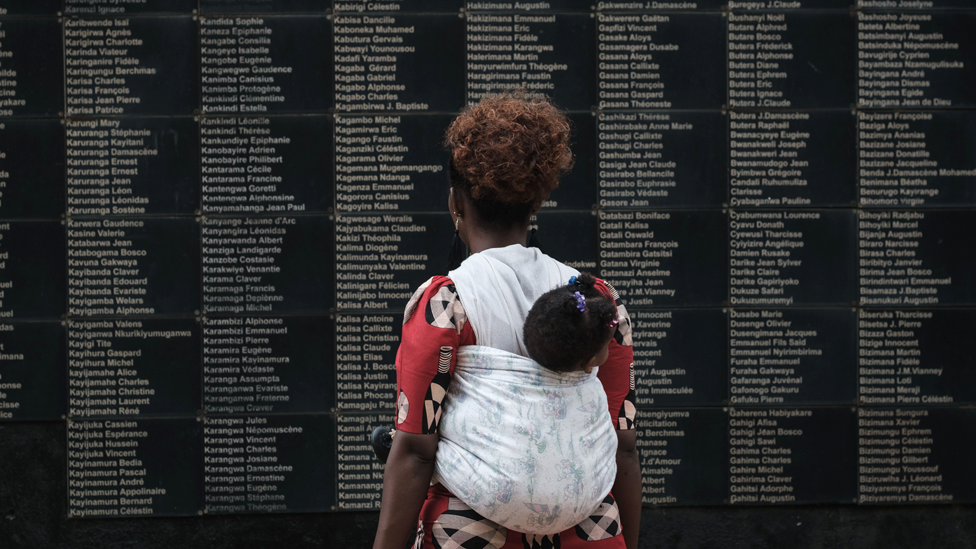
Rwanda marked 25 years since the start of the 100-day genocide in April
But it is not easy for those involved to recall the events - even a quarter of a century later. Hearing Carine's story, it is clear why she waited until her son was old enough to hear the truth.
She was about the same age as him the first time she was raped, one of hundreds of thousands mainly Tutsi women and girls believed to have been sexually assaulted by Hutu neighbours, militia and soldiers.
The genocide had just begun, and she was still bleeding from two machete wounds on either side of her face - wounds which still make it hard to eat and speak today.
Her assailants - people who had once been part of the same community - had dragged her to the edge of a pit where they were dumping the bodies of the men, women and children they had just systematically murdered in a school.
Between April and July 1994, an estimated 800,000 Rwandans were killed in the space of 100 days.
But despite her wounds, despite the pain, Carine knew she did not want to die. She also knew she did not want to die when a group of soldiers sexually assaulted her with small trees and sticks just hours later, causing unimaginable damage.
It was only when another group attacked her, biting her all over her body, she decided she no longer wanted to live.
"Now I wanted to die soon. I wanted to die so many times."
But her ordeal had only just begun: the hospital which tried to save her life was quickly overrun by Hutu militia.
"I couldn't run away. I couldn't go because everything was broken," she says.
"Whoever wanted to have sex with me could. If the perpetrators wanted to urinate, they could come and do it on me."

More on the genocide:

It was only when the hospital was liberated by the rebel Rwandan Patriotic Front that Carine finally got the treatment she needed, and was allowed to return home to her village - weak, broken, bleeding, but alive.
So when the doctors discovered she was pregnant, they were shocked.
"I was asking what to do as the body was almost nothing - I could not imagine what was going to happen.
"When the baby was born, I could not understand why. I could not believe the boy was from me. I was always thinking about what happened. After giving birth, I kept the baby - although I felt no love."
'Children abandoned'
This story - or variations of it - has been told hundreds of times to children across Rwanda over the past 25 years, although rarely told openly.
"Rape is taboo. In most cases, the shame goes to the women instead of the man," says Sam Munderere, chief executive of Survivors Fund (Surf) that coordinates the Foundation Rwanda programme, which offers educational and psychological support for mothers and their children, external born as a result of rape during the genocide.
6 April 1994President Habyarimana, a Hutu, killed in plane explosion
Over 100 days Hutu extremists kill some 800,000 Tutsis and moderate Hutus
4 July 1994 Tutsi-led RPF rebels capture the capital Kigali
Two million Hutus flee to Zaire, now DR Congo, fearing revenge attacks
93ringleaders indicted by a UN tribunal
12,000community courts try more than 1.2 million suspects

In some cases, he explains, the stigma caused relatives to urge the mothers to abandon the children. In others, it caused the breakdown of their marriages.
Where they could, the women kept it secret. As a result, many children only realised how they were conceived when, like Jean-Pierre, they tried to fill in the form.
"The issue is now the mothers telling the children how they were born after the genocide. It was easy to simply say: 'Your father was killed during the genocide.'
"But as kids grow up, they ask many questions, and the mother is sort of pushed to saying the truth."
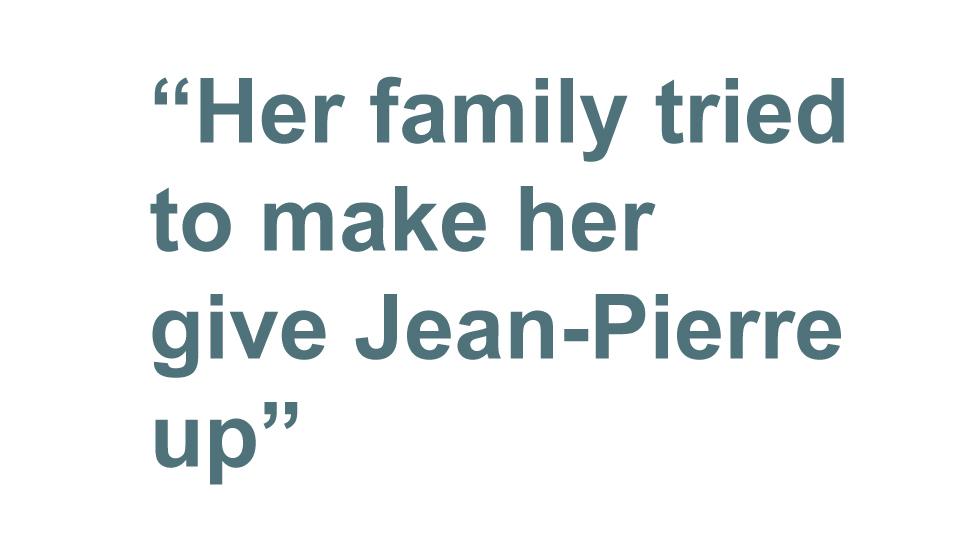
Over the years, Foundation Rwanda has helped mothers find the words to tell their stories over the years but the truth, Sam acknowledges, can cause a trauma of its own.
"The effects can be long-term; the effects can go from generation to generation," he says, recounting the story of one young woman who was hiding the truth about her father from her new husband.
It would, she said, harm her marriage if he knew.
Then there was the mother who admitted she mistreated her daughter because she believed her naughty behaviour was due to "how she was born".
And there are the many mothers who, like Carine, simply felt disconnected from their children, the lasting impact of which is yet to be fully realised.
"They are consequences we would not think of," Mr Munderere points out. "The young people have their own challenges and we are doing our best to support them to be able to fit into society, to feel they are as good as any other young person in Rwanda."
The trauma of bonding
Carine finally told Jean-Pierre the whole story of his conception, and birth, when he was 19 or 20.
He has, he says, accepted it. But still, he feels there is a hole in his life where a father should be. Somewhat surprisingly, he feels no hatred towards the man who attacked his mother - but then, Carine has also decided to forgive.
"One of the things that made me most traumatised was thinking about them. When you forgive, you feel better," she says, matter of factly.
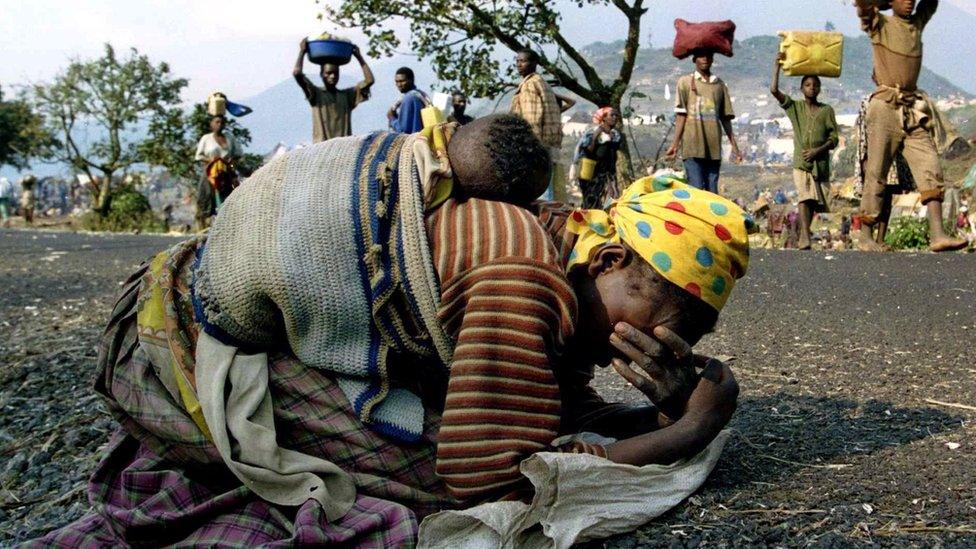
A woman collapses after fleeing Rwanda in 1994
"I have never been angry about him," Jean-Pierre adds. "Sometimes I think about him: when I meet with life challenges I feel that I would love having a father to help me solve these problems."
He plans on training as a mechanic and one day having a family of his own.
"I am planning to help my family as well," he says, although all that takes money - and money is something in short supply.
As for Carine, she accessed counselling early, helping her bond with Jean-Pierre as he grew up: "I feel this is my kid now."
Their closeness is easy to see as they sit on a step looking out over the rolling green hills from the door of their new home, bought with help from Surf.
It sits just outside the village where she grew up - the village she ran from when her family tried to make her give Jean-Pierre up, the village where he was called names as a younger man.
But now things are calm. They feel accepted by both the family and community.
"They know I survived for a long time living with the trauma and I am happy here," she says.
As for Jean-Pierre, he is full of pride for his mother and what she has achieved: "It is very hard to see but I was very happy with her progress.
"The way she accepted what happened. The way she thinks about the future and the way forward."
- Published7 April 2019
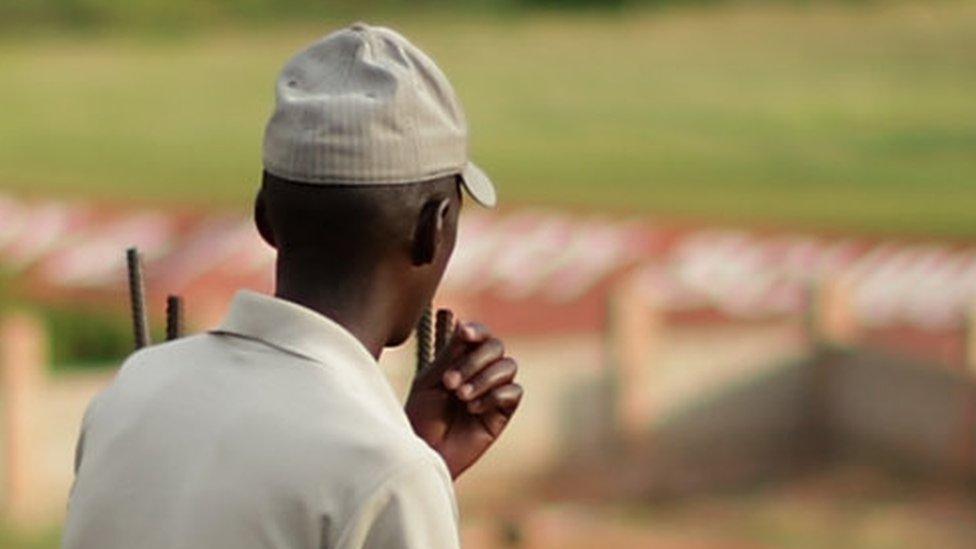
- Published5 April 2019
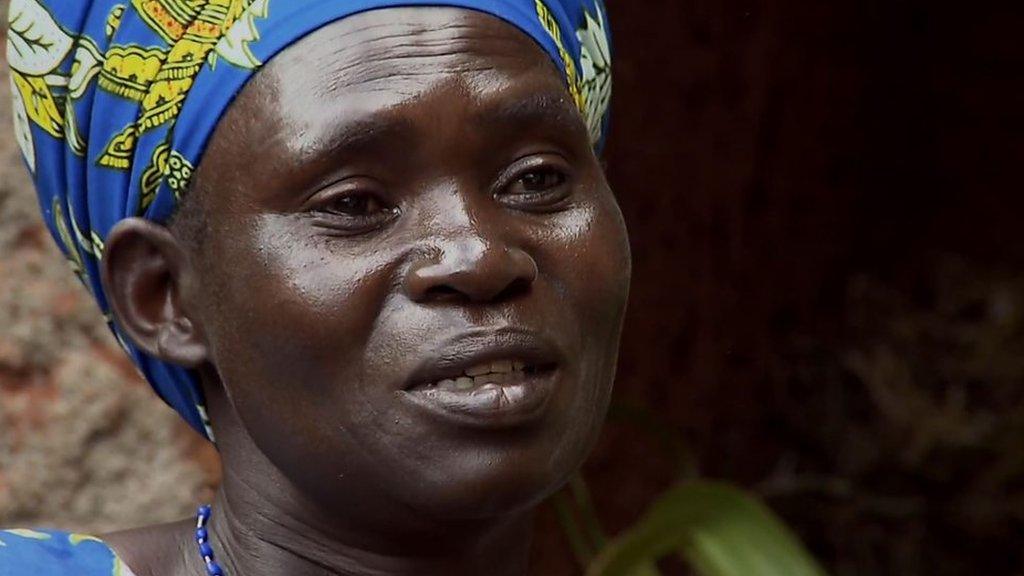
- Published22 December 2018
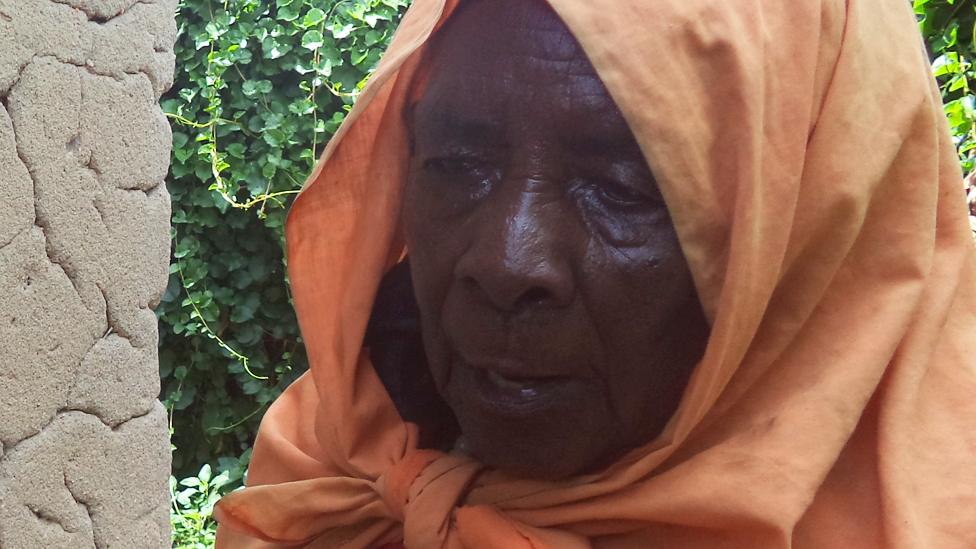
- Published4 April 2019
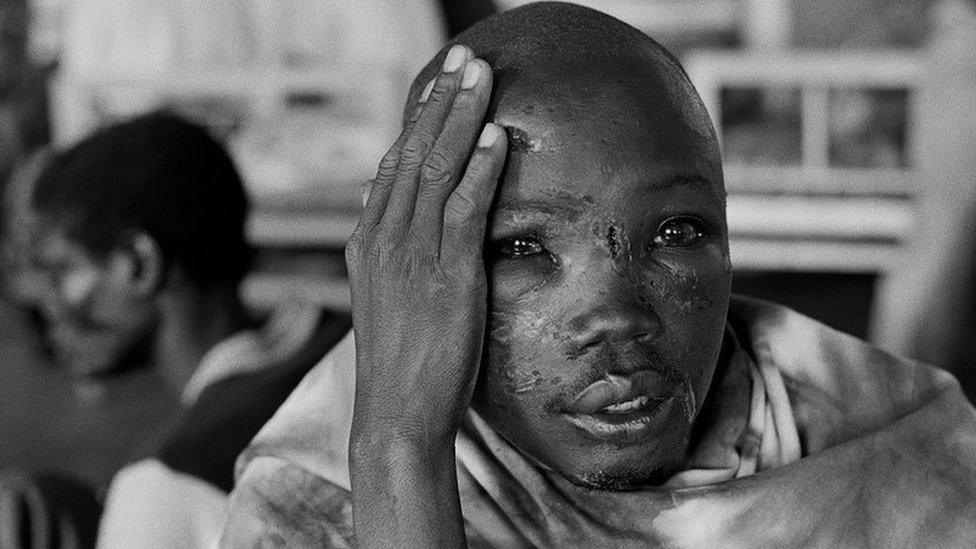
- Published12 March 2015
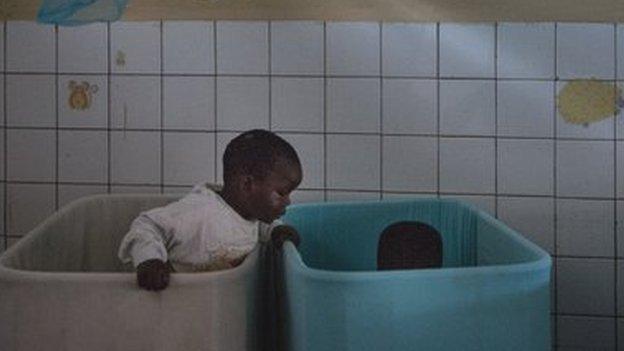
- Published5 April 2014
- Published2 April 2014
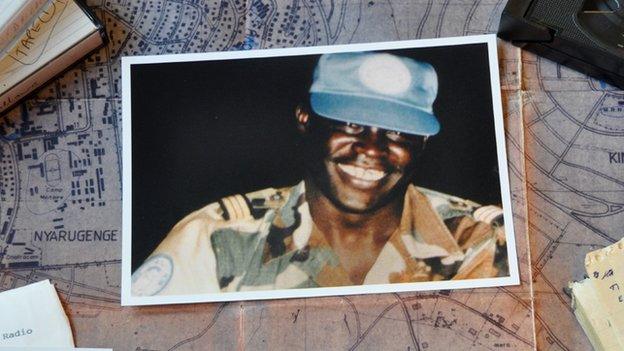
- Published11 June 2012
